
Fukuoka: Gateway to Kyushu
Fukuoka, a vibrant city located on the northern shore of Japan's Kyushu Island, is a blend of modernity and tradition. Known for its friendly locals, delicious food, and rich history, Fukuoka offers a unique experience for every traveler. The city is famous for its Hakata ramen, a delicious noodle dish served in a rich pork bone broth, which you can enjoy at many local eateries. In addition to its culinary delights, Fukuoka boasts several historical sites and cultural attractions. The Fukuoka Castle ruins provide a glimpse into the city's samurai past, while the Dazaifu Tenmangu Shrine, dedicated to the deity of learning, attracts students and tourists alike. For a touch of modernity, visit the Canal City Hakata, a sprawling shopping and entertainment complex that offers something for everyone. Nature lovers will appreciate Fukuoka's beautiful parks and waterfront areas. Ohori Park, with its large pond and lush greenery, is perfect for a leisurely stroll or a boat ride. The Momochi Seaside Park offers stunning views of the ocean and the Fukuoka Tower, one of the tallest structures in Japan. Whether you're exploring the bustling streets of Tenjin or relaxing by the sea, Fukuoka is a city that promises unforgettable memories.
Local tips in Fukuoka
- Try the tonkotsu ramen at local eateries for an authentic taste of Fukuoka.
- Visit Ohori Park early in the morning for a peaceful experience.
- Purchase a Fukuoka Tourist City Pass for unlimited travel on buses and trains within the city.
- Explore the Yanagawa River on a traditional boat for a unique perspective of the city.
- Check out the local festivals, especially the Hakata Gion Yamakasa in July.
Neighbourhoods in Fukuoka
Fukuoka: Gateway to Kyushu
Fukuoka, a vibrant city located on the northern shore of Japan's Kyushu Island, is a blend of modernity and tradition. Known for its friendly locals, delicious food, and rich history, Fukuoka offers a unique experience for every traveler. The city is famous for its Hakata ramen, a delicious noodle dish served in a rich pork bone broth, which you can enjoy at many local eateries. In addition to its culinary delights, Fukuoka boasts several historical sites and cultural attractions. The Fukuoka Castle ruins provide a glimpse into the city's samurai past, while the Dazaifu Tenmangu Shrine, dedicated to the deity of learning, attracts students and tourists alike. For a touch of modernity, visit the Canal City Hakata, a sprawling shopping and entertainment complex that offers something for everyone. Nature lovers will appreciate Fukuoka's beautiful parks and waterfront areas. Ohori Park, with its large pond and lush greenery, is perfect for a leisurely stroll or a boat ride. The Momochi Seaside Park offers stunning views of the ocean and the Fukuoka Tower, one of the tallest structures in Japan. Whether you're exploring the bustling streets of Tenjin or relaxing by the sea, Fukuoka is a city that promises unforgettable memories.
When is the best time to go to Fukuoka?
Iconic landmarks you can’t miss
CANAL CITY HAKATA
Experience Fukuoka's vibrant 'city within a city': shopping, dining, entertainment, and stunning canal-side architecture at Canal City Hakata.
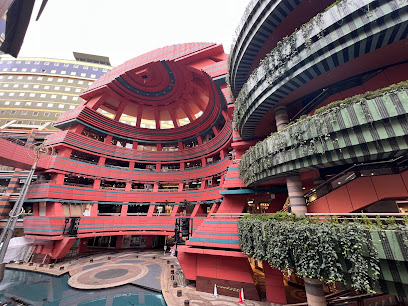
Dazaifu Tenmangu太宰府天満宮
Discover Dazaifu Tenmangu Shrine: A historical and spiritual haven dedicated to the deity of learning, culture, and the arts, surrounded by stunning plum blossoms.
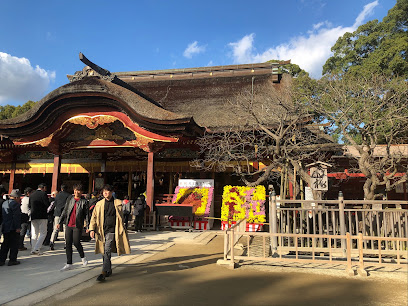
Fukuoka Tower
Experience breathtaking 360° views of Fukuoka City and Hakata Bay from Japan's tallest seaside tower, a shimmering 'Mirror Sail' landmark.
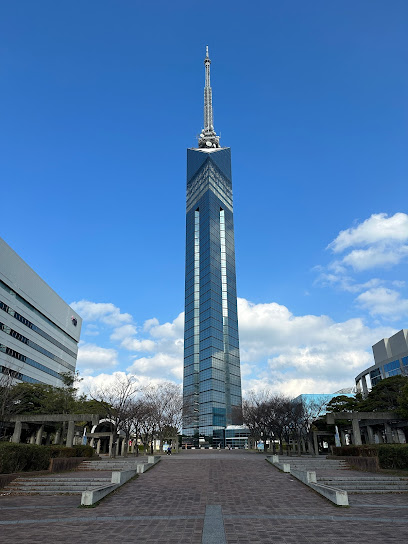
Kushida Shrine
Discover Fukuoka's spiritual heart at Kushida Shrine, a historic landmark and vibrant center for traditional festivals.
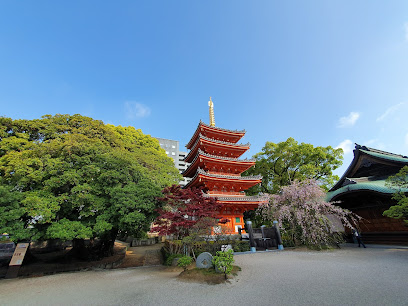
Ohori Park
Escape to Fukuoka's Ohori Park: A serene urban oasis with a scenic pond, lush gardens, and cultural attractions.
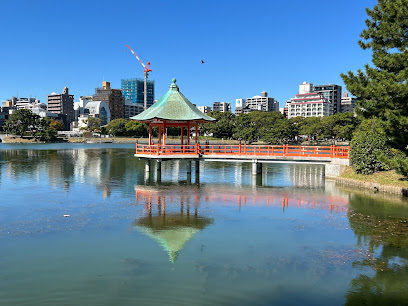
Acros Fukuoka
Discover Acros Fukuoka, where stunning architecture meets lush greenery, cultural events, and unique shopping in the heart of Japan's vibrant city.
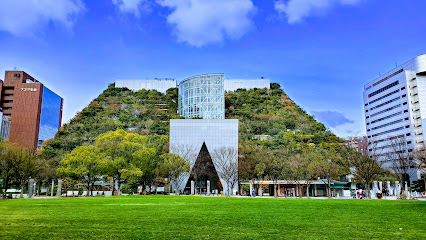
Maizuru Park
Explore Fukuoka's Maizuru Park: A historic castle ground, scenic beauty, and seasonal blooms in the heart of the city.
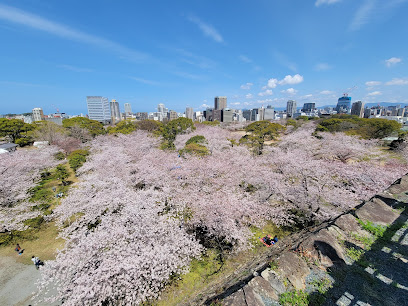
Tenjin Underground Mall
Explore a unique underground shopping experience in Fukuoka with over 150 shops and restaurants in a 19th-century European-inspired setting.
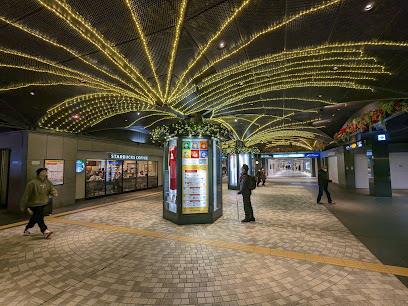
Momochi Seaside Park
Experience Fukuoka's vibrant waterfront at Momochi Seaside Park: beaches, attractions, and stunning views await!
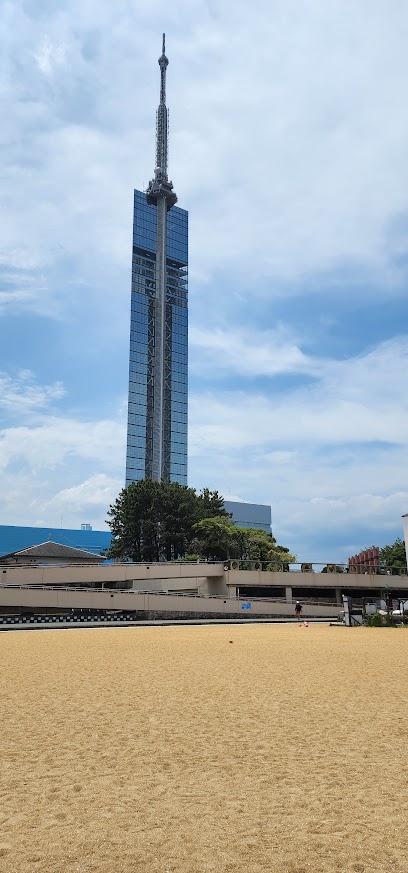
Nanzoin
Discover the serene Nanzoin Temple in Fukuoka, home to the world's largest bronze reclining Buddha statue and a peaceful pilgrimage site.
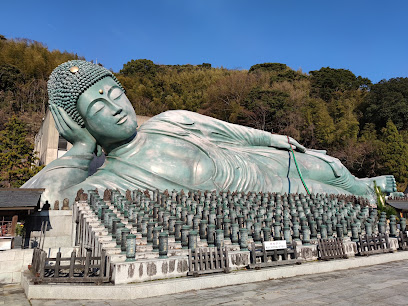
Sumiyoshi Jinja
Discover Fukuoka's oldest Sumiyoshi Shrine, a serene oasis of maritime history and traditional architecture near Hakata Station.
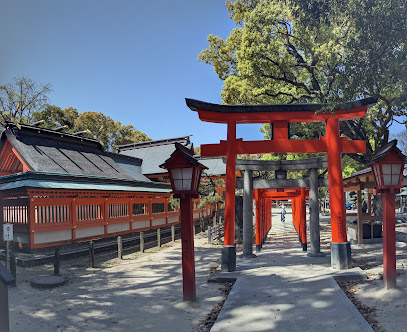
Uminonakamichi Seaside Park
Explore Fukuoka's Uminonakamichi Seaside Park: a vast coastal oasis with seasonal flowers, recreational activities, and family-friendly fun.
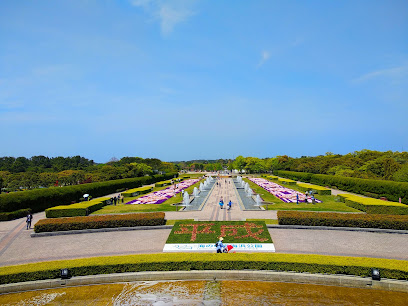
Fukuoka Castle Ruins
Explore the historic Fukuoka Castle Ruins in Maizuru Park, offering scenic views and a glimpse into Japan's feudal past, especially during cherry blossom season.
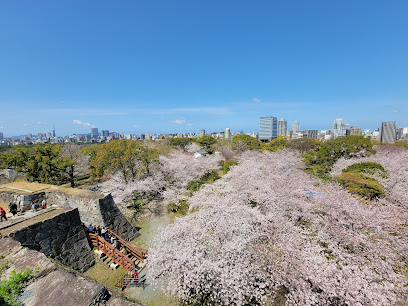
Nakasu Yatai Yokocho (Food Stalls Street)
Experience Fukuoka's vibrant nightlife and culinary soul at Nakasu Yatai Yokocho, a riverside haven of delicious street food and local culture.
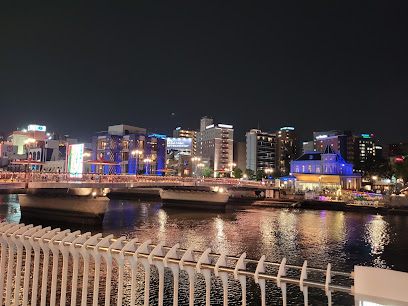
Tochoji Temple.
Discover Fukuoka's oldest Shingon temple, featuring Japan's largest wooden Buddha, a five-story pagoda, and a journey through hell and paradise.
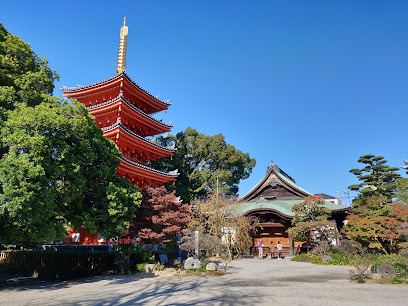
Unmissable attractions to see
CANAL CITY HAKATA
Canal City Hakata: Discover Fukuoka's premier shopping and entertainment destination with a unique canal and vibrant cultural experiences.
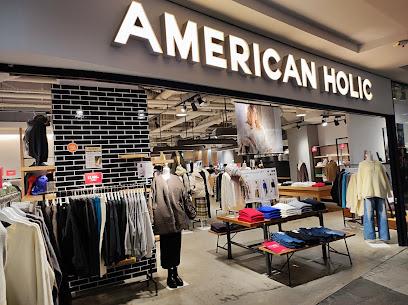
Dazaifu Tenmangu太宰府天満宮
Explore the serene beauty and rich history of Dazaifu Tenmangu, a revered Shinto shrine dedicated to the god of learning in Fukuoka, Japan.
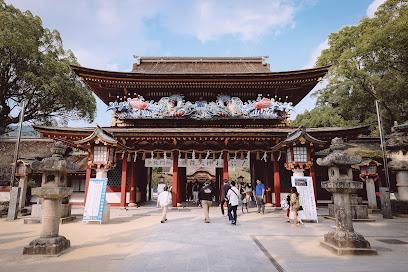
Fukuoka Tower
Discover breathtaking views and cultural richness at Fukuoka Tower, a must-see tourist attraction in Japan's vibrant Fukuoka city.
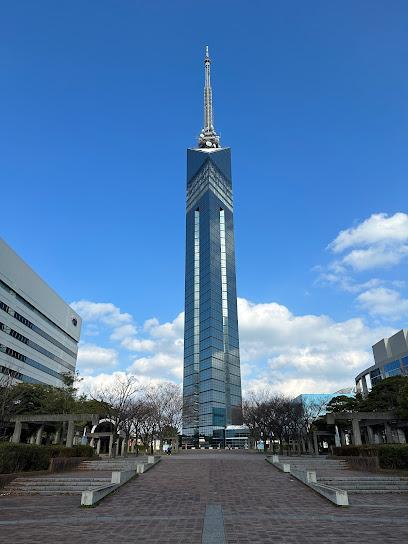
Ohori Park
Discover the tranquility and beauty of Ohori Park, a perfect blend of nature and culture in the heart of Fukuoka, Japan.
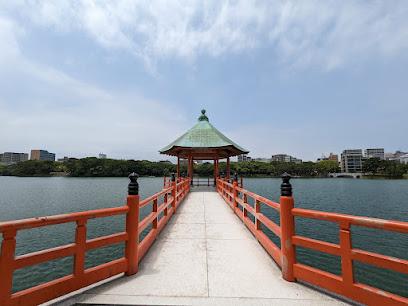
Marine World
Explore the wonders of Japan's marine life at Marine World, a captivating aquarium in Fukuoka showcasing the beauty of underwater ecosystems.
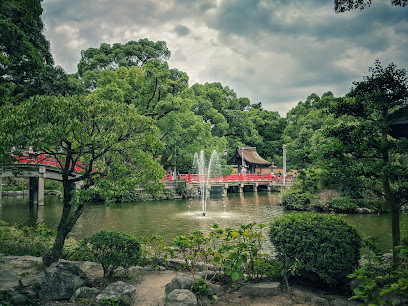
Kyushu National Museum
Explore the rich history and cultural heritage of Japan at the Kyushu National Museum in Dazaifu, Fukuoka.
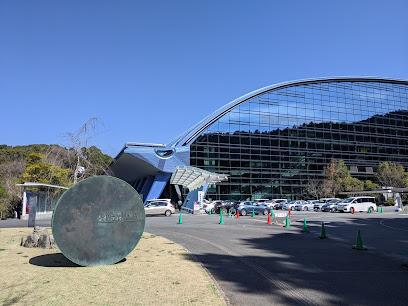
Maizuru Park
Explore Maizuru Park in Fukuoka - a captivating blend of history, nature, and culture awaits in this beautiful urban oasis.
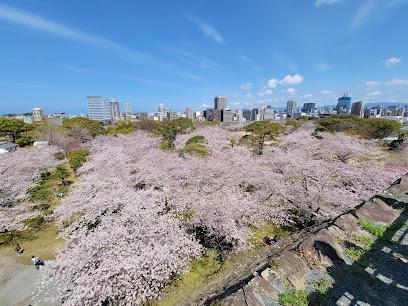
Karatsu Castle
Explore Karatsu Castle, a historic gem in Saga, Japan, blending stunning architecture with rich cultural heritage.
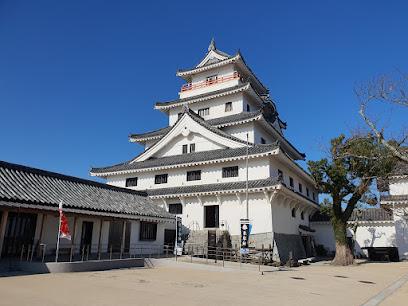
Hakozakigu Shrine
Explore the historical Hakozakigu Shrine in Fukuoka, a serene Shinto shrine celebrating tradition, culture, and spirituality in Japan.
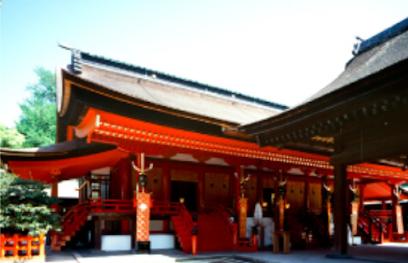
Momochi Seaside Park
Explore the serene beauty and recreational opportunities at Momochi Seaside Park in Fukuoka, Japan, where nature and culture beautifully intertwine.
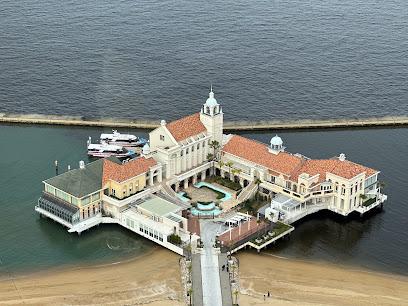
Fukuoka City Museum
Discover the rich history of Fukuoka at the Fukuoka City Museum, where culture and heritage intertwine through captivating exhibits.
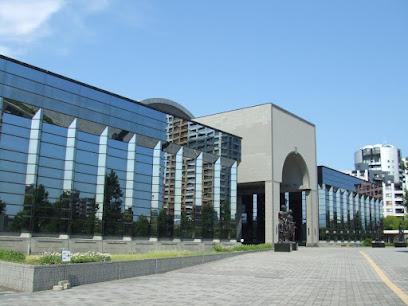
Kamado Shrine
Visit Kamado Shrine in Dazaifu, a serene Shinto shrine with vibrant architecture and lush gardens, embodying Japan's rich spiritual heritage.
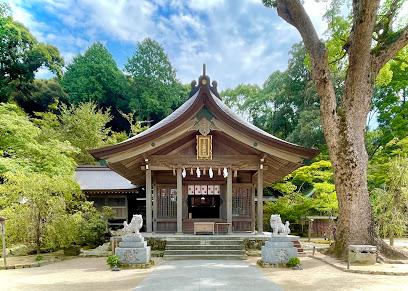
Sumiyoshi Jinja
Discover tranquility and spiritual heritage at Sumiyoshi Jinja in Fukuoka, a stunning example of Shinto architecture and serene natural beauty.
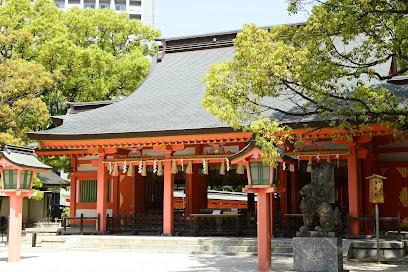
Uminonakamichi Seaside Park
Explore the natural beauty and recreational delight of Uminonakamichi Seaside Park, a coastal gem in Fukuoka, Japan, perfect for all ages.
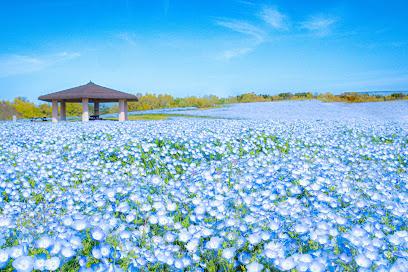
Tochoji Temple
Discover the tranquil beauty of Tochoji Temple in Fukuoka, an essential Buddhist site featuring stunning architecture and serene gardens for reflection and peace.
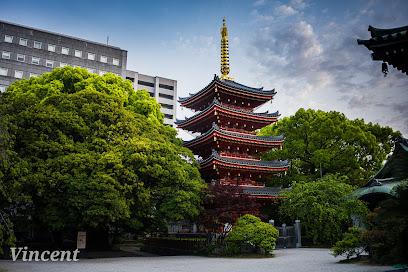
Essential places to dine
Yoshizuka Unagi
Experience authentic unagi dining at Yoshizuka Unagi in Fukuoka – where tradition meets exquisite flavor.
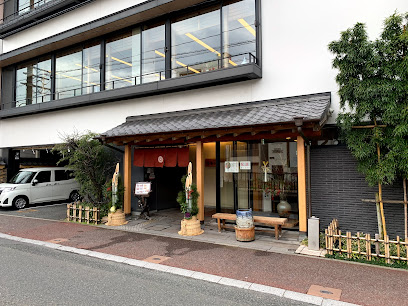
Tempura Hirao Main Store
Discover authentic Japanese tempura at Tempura Hirao Main Store in Fukuoka—where quality meets affordability in every delicious bite.
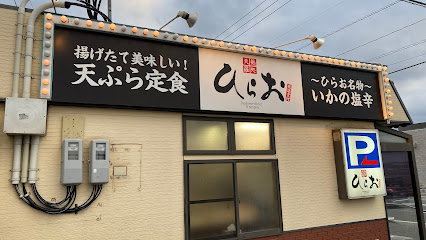
Ganso Hakata Mentaiju
Experience authentic Japanese cuisine at Ganso Hakata Mentaiju in Fukuoka – where tradition meets flavor.
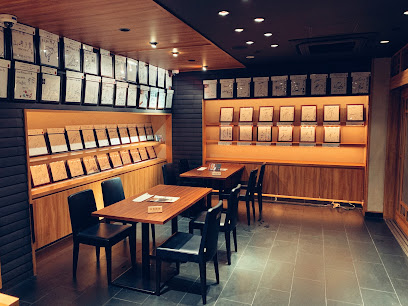
Hyotan Sushi
Experience exceptional sushi at Hyotan Sushi in Fukuoka - where tradition meets innovation in every bite.
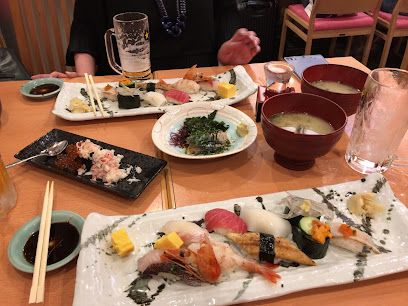
Chikae Fukuoka
Discover the exquisite flavors of authentic Japanese kaiseki at Chikae Fukuoka - where fresh seafood meets culinary artistry.
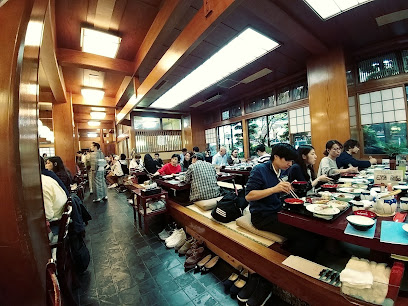
Hakata Robata Fishman
Experience the best of Fukuoka's seafood at Hakata Robata Fishman - where tradition meets flavor in every bite.
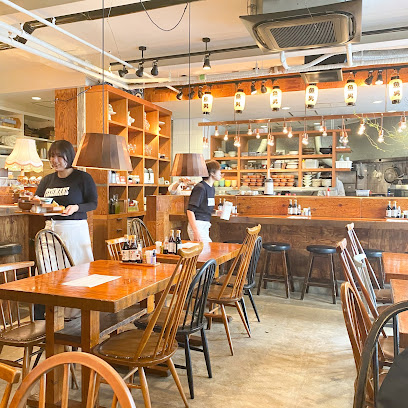
Tempura Hirao
Discover the authentic taste of Japan at Tempura Hirao in Fukuoka – where fresh ingredients meet expert preparation.
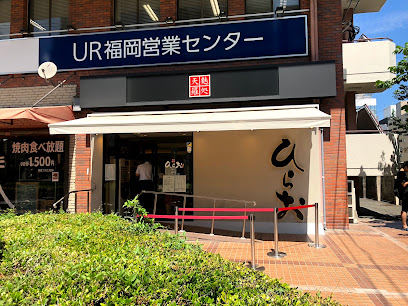
Orenofurenchi Hakata
Discover Orenofurenchi Hakata: where French culinary artistry meets Japanese freshness in an elegant setting.
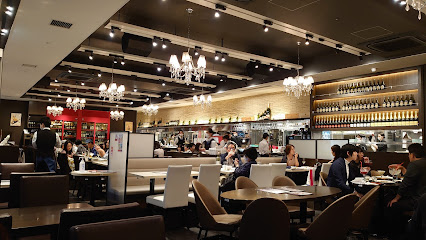
bills Fukuoka
Discover the vibrant fusion of Australian flavors at bills Fukuoka, where culinary creativity meets stunning garden views.
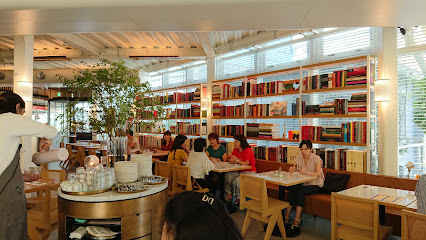
Hakata Mizutaki Toriden
Discover authentic Mizutaki at Hakata Mizutaki Toriden in Fukuoka – a culinary delight that captures Japan's rich flavors and traditions.
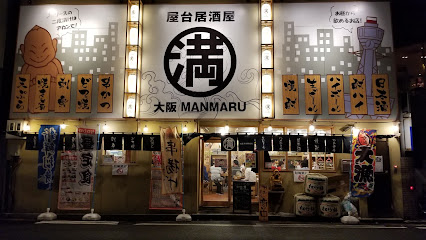
YATAROU UDON
Experience authentic udon noodles in Fukuoka at Yatarou Udon - where tradition meets taste in every bowl.
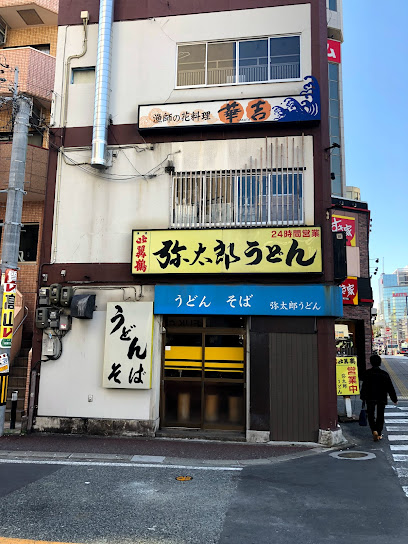
Uminomichi
Discover Uminomichi in Fukuoka: A haven for seafood lovers and tempura enthusiasts seeking authentic Japanese dining experiences.
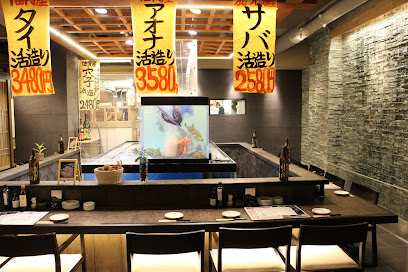
Miyazaki Beef Teppanyaki Steak · Yakiniku HAKATA MIYACHIKU
Discover the culinary delight of Miyazaki beef at Yakiniku Hakata Miyachiku - where teppanyaki meets tradition in Fukuoka's vibrant Nakasu district.
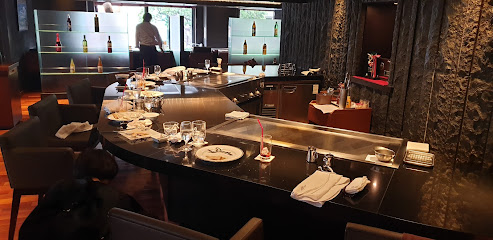
Fujiyoshi
Experience authentic yakitori at Fujiyoshi in Fukuoka – where every skewer tells a story of flavor and tradition.

Hakatarou
Experience traditional Japanese cuisine at Hakatarou in Fukuoka – where every dish tells a story.
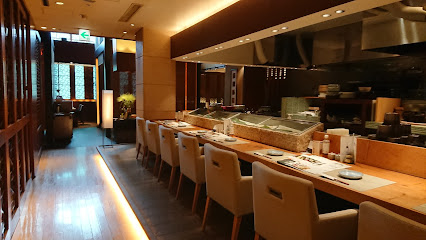
Markets, malls and hidden boutiques
CANAL CITY HAKATA
Discover the ultimate shopping and entertainment experience at Canal City Hakata, where tradition meets modernity in the heart of Fukuoka.
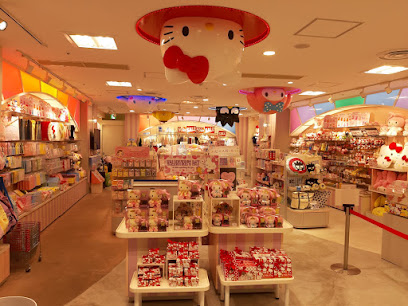
AMU Plaza Hakata City
Explore Fukuoka's premier shopping destination, AMU Plaza Hakata City, where vibrant culture meets a fantastic retail and dining experience.
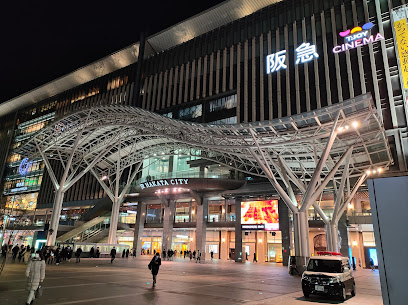
Hakata Hankyu
Discover a world of shopping and dining at Hakata Hankyu, Fukuoka's premier department store featuring local and international brands.
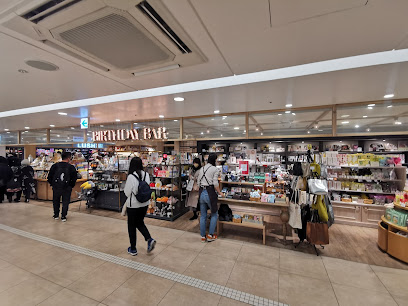
Daimaru Fukuoka Tenjin
Explore Daimaru Fukuoka Tenjin - a vibrant department store offering diverse shopping, dining, and cultural experiences in the heart of Fukuoka.
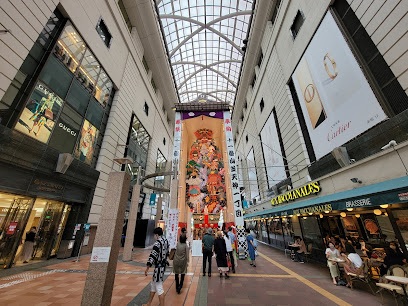
Marinoa City Fukuoka
Discover Marinoa City Fukuoka, a premier shopping destination offering stunning marina views, a diverse range of shops, and delightful dining experiences.
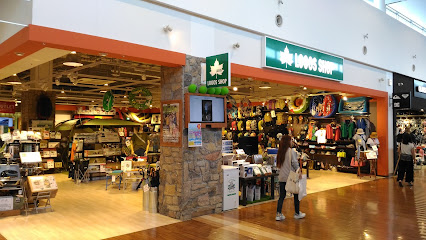
Fukuoka PARCO
Discover Fukuoka PARCO, a premier shopping mall offering fashion, dining, and entertainment in the vibrant Tenjin district of Fukuoka.
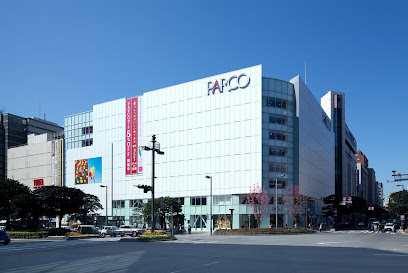
Iwataya-honten
Explore the heart of Fukuoka at Iwataya-honten, a premier department store offering luxury shopping, gourmet food, and a taste of Japanese culture.
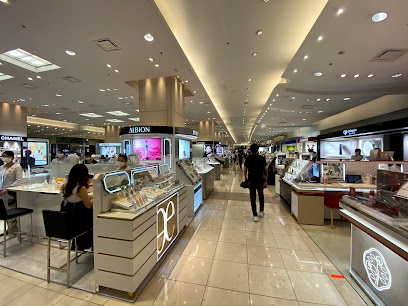
Don Quijote Nakasu
Discover unbeatable deals and a vast selection of products at Don Quijote Nakasu, the ultimate shopping destination in Fukuoka.
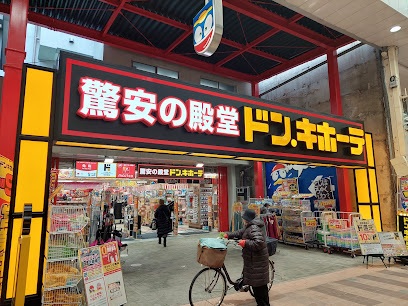
LaLaport Fukuoka
Explore LaLaport Fukuoka, a bustling shopping mall filled with diverse shops, delicious dining options, and endless entertainment for all ages.
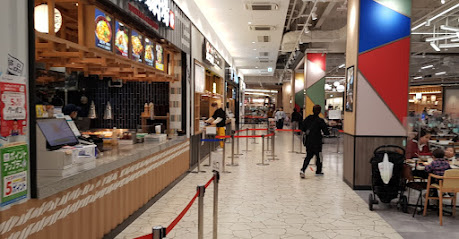
Tenjin Underground Mall
Discover Fukuoka's Tenjin Underground Mall, a vibrant shopping and dining paradise beneath the city, offering endless options for tourists to explore.
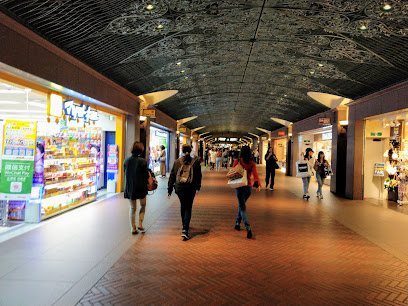
MARK IS Fukuoka Momochi
Discover a world of shopping and dining at MARK IS Fukuoka Momochi, where modernity meets tradition in the heart of Fukuoka.
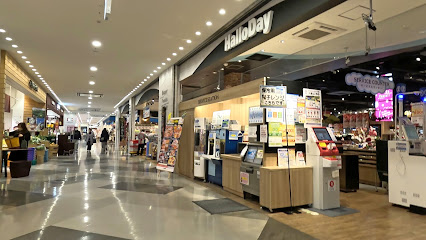
MITSUKOSHI Fukuoka Store
Explore luxury shopping and gourmet dining at MITSUKOSHI Fukuoka Store in the heart of Tenjin, a unique blend of tradition and modernity.
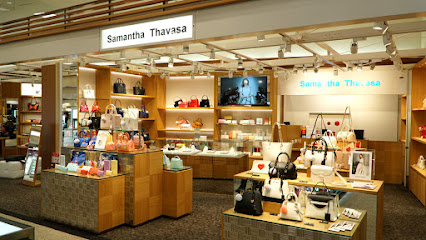
Shintencho shopping district
Discover Fukuoka's Shintencho Shopping District, a vibrant hub filled with shops, eateries, and local culture waiting to be explored.
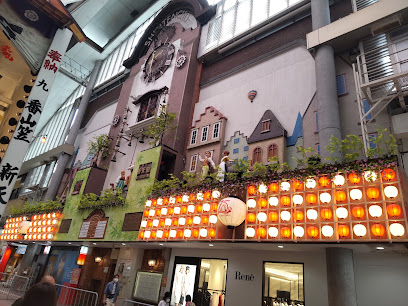
MANDARAKE Fukuoka
Explore the vibrant world of collectibles at Mandarake Fukuoka, where rare finds and Japanese pop culture await every enthusiast.
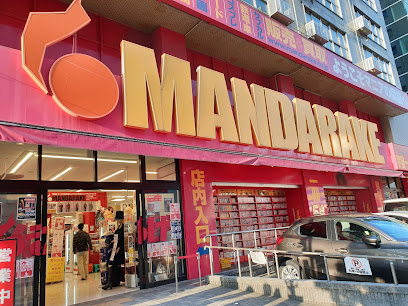
HAKATA RIVERAIN MALL by TAKASHIMAYA
Discover the heart of shopping and dining at HAKATA RIVERAIN MALL, a vibrant destination in Fukuoka, Japan, perfect for tourists and locals alike.
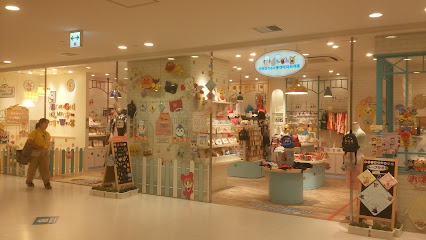
Essential bars & hidden hideouts
Hakata Mitsubachi
Discover the vibrant nightlife and exquisite flavors of Fukuoka at Hakata Mitsubachi, a top-rated bar and restaurant for tourists.
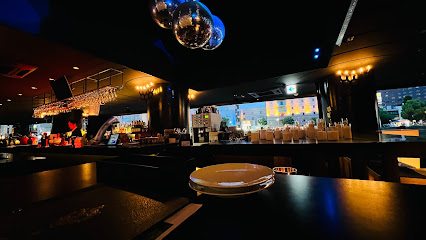
British Pub MORRIS' BLACK SHEEP
Discover British culture in the heart of Fukuoka at Morris' Black Sheep, a charming pub offering delicious food and a wide selection of beverages.
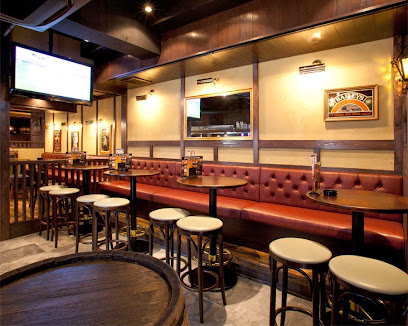
Grand Mirage
Discover Fukuoka's Grand Mirage, where modern izakaya meets Italian flair in a vibrant setting perfect for food lovers.
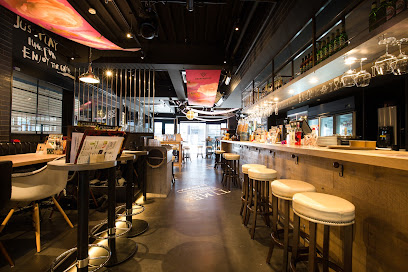
Bar Oscar
Discover Bar Oscar in Fukuoka for a unique cocktail experience, blending creativity, quality, and vibrant nightlife in the heart of Daimyo.
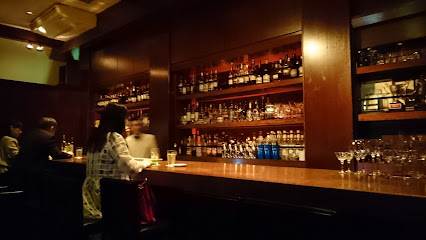
British Pub MORRIS’ RED FOX ブリティッシュ パブ モーリス レッドフォックス
Discover a taste of Britain in Fukuoka at MORRIS’ RED FOX, where delicious fish and chips meet a cozy pub atmosphere.
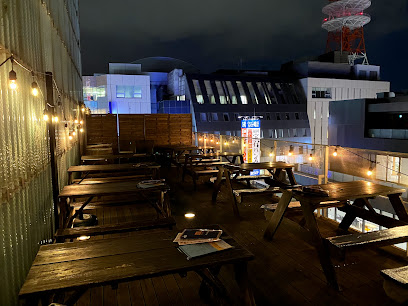
8 Stars American Bar
Discover the lively 8 Stars American Bar in Fukuoka, where delicious food meets live music and fun karaoke nights for an unforgettable experience.
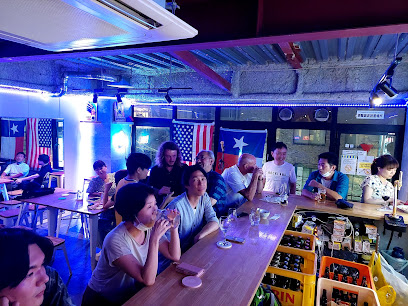
Higuchi
Discover Higuchi, an upscale bar in Nakasu, Fukuoka, known for its exquisite cocktails and lively atmosphere, perfect for a night out.
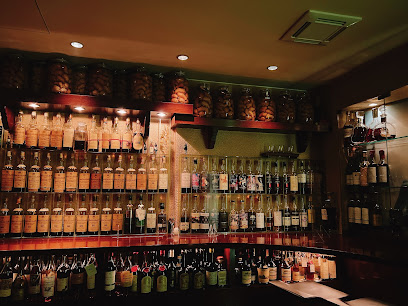
Barr Nowhere
Experience the vibrant nightlife of Fukuoka at Barr Nowhere, a rock-themed bar offering a cozy atmosphere and great drinks.
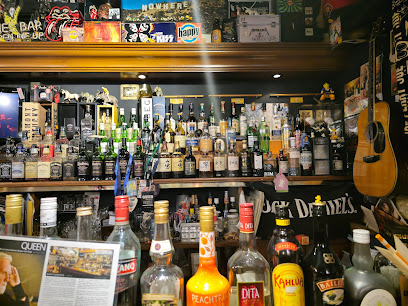
Cheers
Experience Fukuoka's vibrant nightlife at Cheers, a lively bar featuring live music, great drinks, and an unforgettable atmosphere.
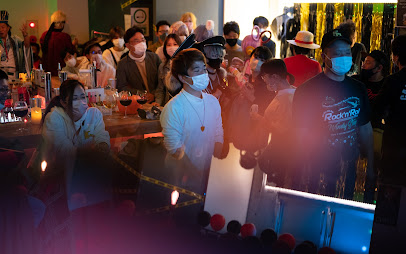
Bar Kitchen
Discover the vibrant flavors of Fukuoka at Bar Kitchen, where culinary creativity meets a lively atmosphere perfect for food lovers.
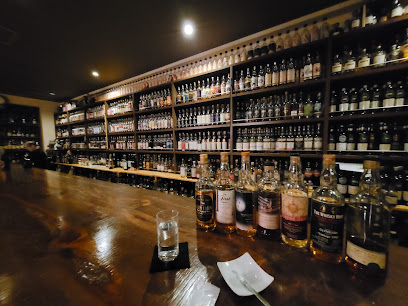
Bar Fuji
Experience the vibrant nightlife at Bar Fuji in Fukuoka, where expertly crafted cocktails and a cozy atmosphere await you.
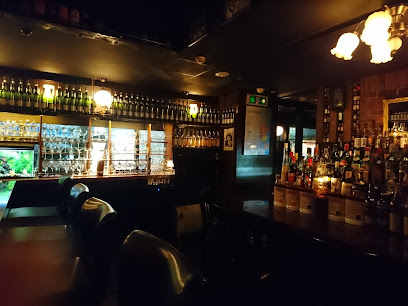
BAR ポートベロー
Discover BAR ポートベロー in Fukuoka, where exquisite cocktails and a lively atmosphere create the perfect night out experience.
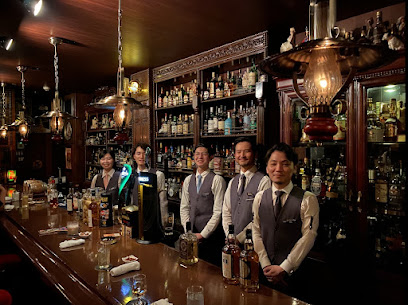
Bar Cooper
Discover Bar Cooper in Fukuoka, a charming Irish pub offering a diverse drink selection, live music, and a cozy atmosphere for unforgettable nights.
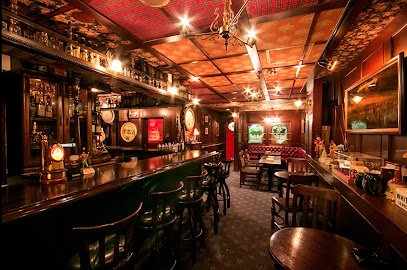
International Bar
Discover the vibrant nightlife of Fukuoka at International Bar, where local flavors meet international spirit in a lively atmosphere.
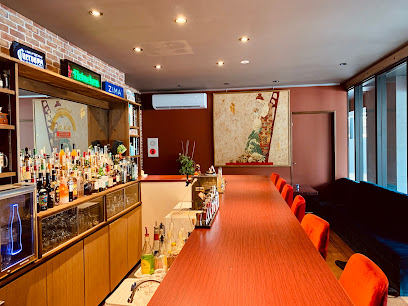
Local Phrases
-
- Helloこんにちは
[Konnichiwa] - Goodbyeさようなら
[Sayonara] - Yesはい
[Hai] - Noいいえ
[Iie] - Please/You're welcomeどうぞ
[Douzo] - Thank youありがとうございます
[Arigatou gozaimasu] - Excuse me/Sorryすみません
[Sumimasen] - How are you?お元気ですか?
[Ogenki desu ka?] - Fine. And you?元気です。あなたは?
[Genki desu. Anata wa?] - Do you speak English?英語を話せますか?
[Eigo o hanasemasu ka?] - I don't understandわかりません
[Wakarimasen]
- Helloこんにちは
-
- I'd like to see the menu, pleaseメニューを見せてください
[Menyuu o misete kudasai] - I don't eat meat肉は食べません
[Niku wa tabemasen] - Cheers!乾杯!
[Kanpai!] - I would like to pay, pleaseお会計をお願いします
[Okaikei o onegaishimasu]
- I'd like to see the menu, pleaseメニューを見せてください
-
- Help!助けて!
[Tasukete!] - Go away!行って!
[Itte!] - Call the Police!警察を呼んで!
[Keisatsu o yonde!] - Call a doctor!医者を呼んで!
[Isha o yonde!] - I'm lost道に迷っています
[Michi ni mayotte imasu] - I'm ill具合が悪いです
[Guai ga warui desu]
- Help!助けて!
-
- I'd like to buy...買いたいです...
[Kaitai desu...] - I'm just looking見てるだけです
[Miteru dake desu] - How much is it?いくらですか?
[Ikura desu ka?] - That's too expensiveそれは高すぎます
[Sore wa takasugimasu] - Can you lower the price?値段を下げてもらえますか?
[Nedan o sagete moraemasu ka?]
- I'd like to buy...買いたいです...
-
- What time is it?今何時ですか?
[Ima nanji desu ka?] - It's one o'clock1時です
[Ichiji desu] - Half past (10)10時半
[Juuji han] - Morning朝
[Asa] - Afternoon午後
[Gogo] - Evening夕方
[Yuugata] - Yesterday昨日
[Kinou] - Today今日
[Kyou] - Tomorrow明日
[Ashita] - 11
[Ichi] - 22
[Ni] - 33
[San] - 44
[Yon] - 55
[Go] - 66
[Roku] - 77
[Nana] - 88
[Hachi] - 99
[Kyuu] - 1010
[Juu]
- What time is it?今何時ですか?
-
- Where's a/the...?...はどこですか?
[...wa doko desu ka?] - What's the address?住所は何ですか?
[Juusho wa nan desu ka?] - Can you show me (on the map)?(地図で)見せてもらえますか?
[(Chizu de) misete moraemasu ka?] - When's the next (bus)?次の(バス)はいつですか?
[Tsugi no (basu) wa itsu desu ka?] - A ticket (to ....)チケット(....行き)をください
[Chiketto (....yuki) o kudasai]
- Where's a/the...?...はどこですか?
History of Fukuoka
-
Fukuoka's history can be traced back to the 7th century when it was known as Dazaifu, an administrative center for the region and a crucial part of Japan's defense against potential invasions from the Asian mainland. Dazaifu housed government offices and was the resident city for many notable officials and scholars. The city's significance is also marked by the Tenman-gu Shrine, dedicated to the God of Learning, Sugawara Michizane, which continues to be a major pilgrimage site.
-
Fukuoka played a pivotal role during the Mongol invasions of Japan. In 1274 and 1281, Kublai Khan’s forces attempted to invade Japan and landed on the shores of Hakata Bay. The Samurai warriors of Fukuoka fiercely defended their land, and according to legend, a typhoon – known as 'Kamikaze' or Divine Wind – destroyed the invading fleets. The remains of the stone walls built to defend against the Mongols can still be seen today, a testament to Fukuoka's strategic importance.
-
In the early 1600s, Fukuoka saw the construction of Fukuoka Castle, commissioned by Kuroda Nagamasa, a loyal vassal of Tokugawa Ieyasu. The castle, also known as Maizuru Castle, became the seat of the Kuroda clan. Although much of the castle has been lost to time, the remaining ruins and the scenic Maizuru Park offer a glimpse into the feudal era of Japan. The castle grounds become particularly enchanting during cherry blossom season, attracting numerous visitors.
-
With the Meiji Restoration in 1868, Fukuoka underwent significant modernization. The merging of Fukuoka and Hakata in 1889 marked a new chapter in the city's urban development. This period saw the introduction of Western technologies and infrastructure, transforming Fukuoka into a vibrant trade and industrial hub. The city's port facilities were expanded, making it a key point of international commerce and cultural exchange.
-
Fukuoka, like many Japanese cities, was affected by World War II. Though it escaped the extensive bombing that devastated other cities, Fukuoka still faced significant challenges during the war years. Post-war reconstruction efforts transformed Fukuoka into a modern city, balancing its historical heritage with rapid economic growth. The establishment of Kyushu University and various cultural institutions during this period solidified Fukuoka's status as a center of education and culture.
-
Fukuoka is renowned for its vibrant cultural festivals, with the Hakata Gion Yamakasa being one of the most famous. Held annually in July, this festival dates back over 700 years and features teams of men racing through the streets carrying elaborately decorated floats. The event is deeply rooted in the local culture and is a spectacular display of community spirit and traditional craftsmanship. The energy and excitement of the festival attract visitors from around the world, offering a unique glimpse into Fukuoka's rich cultural heritage.
Fukuoka Essentials
-
Fukuoka is accessible via Fukuoka Airport, which offers both domestic and international flights. The airport is conveniently located just a few kilometers from the city center. From the airport, you can take the subway (Kuko Line) to Tenjin or Hakata station, a journey that takes approximately 10 minutes. Alternatively, you can use taxi services or airport limousine buses to reach various parts of the city.
-
Fukuoka has an efficient public transportation system comprising subways, buses, and trains. The Fukuoka City Subway has three lines: Kuko (Airport) Line, Hakozaki Line, and Nanakuma Line, covering major attractions and business areas. Nishitetsu buses run throughout the city and are a convenient way to get around. JR trains connect Fukuoka to other parts of Japan. Taxis are also available and are a reliable, albeit more expensive, option for getting around. Bike rentals are popular among locals and tourists for short distances.
-
The official currency in Japan is the Japanese Yen (JPY). Credit cards are widely accepted in hotels, restaurants, and shops, but cash is still commonly used, especially in smaller establishments. ATMs that accept international cards can be found in convenience stores such as 7-Eleven and FamilyMart. It's advisable to carry some cash for smaller purchases and transportation fares.
-
Fukuoka is generally a safe city for tourists. Violent crime is rare, but petty crimes such as pickpocketing can occur in crowded areas. Areas like Nakasu are known for nightlife and entertainment but can be overwhelming for some tourists. Exercise standard precautions, avoid walking alone late at night, and keep an eye on your belongings.
-
In case of emergency, dial 110 for police assistance and 119 for fire or medical emergencies. Fukuoka has several hospitals and clinics that offer emergency services. It is recommended to have travel insurance that covers medical emergencies. For minor health issues, pharmacies (薬局, yakkyoku) are available throughout the city and offer over-the-counter medications.
-
Fashion: Do dress comfortably but modestly. Avoid wearing overly revealing clothing in public spaces. Religion: Do respect religious sites such as temples and shrines. Remove your shoes when entering and be quiet and respectful. Public Transport: Do be mindful of others. Avoid talking loudly and always give up your seat to elderly, disabled, or pregnant passengers. Eating & Drinking: Do try local foods and be open to new culinary experiences. Do not eat or drink while walking, as it is considered impolite. Greetings: Do bow slightly when greeting someone. A handshake is less common but acceptable.
-
To experience Fukuoka like a local, visit the Yanagibashi Rengo Market for fresh seafood and local produce. Participate in local festivals such as the Hakata Gion Yamakasa in July. For a unique experience, take a stroll along the Momochi Seaside Park and visit Fukuoka Tower for stunning views of the city. Don’t miss trying the local specialty, Hakata ramen, at one of the many ramen stalls (yatai) scattered throughout the city.
Trending Landmark in Fukuoka
Nearby Cities to Fukuoka
-
Things To Do in Hiroshima
-
Things To Do in Busan
-
Things To Do in Ulsan
-
Things To Do in Gyeongju
-
Things To Do in Pohang
-
Things To Do in Daegu
-
Things To Do in Suncheon
-
Things To Do in Jeju City
-
Things To Do in Andong
-
Things To Do in Gwangju
-
Things To Do in Jeonju
-
Things To Do in Mokpo
-
Things To Do in Daejeon
-
Things To Do in Osaka
-
Things To Do in Nara
















